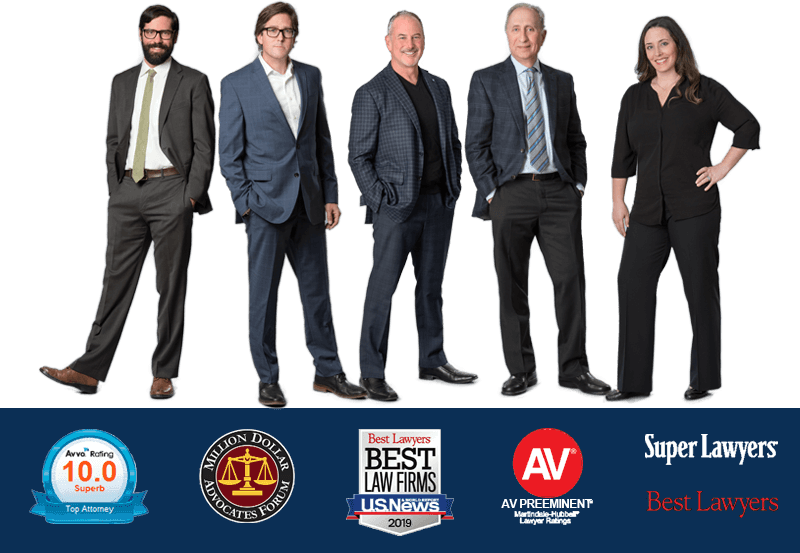THE CITY OF LOS ANGELES HAS JUST CHANGED ITS LAWS
INTENDING TO DRASTICALLY SHORTEN AND MAKE LESS EXPENSIVE THE PROCESS FOR RESTAURANTS TO OBTAIN ENTITLEMENTS TO SERVE ALCOHOLIC BEVERAGES!
By Stephen A. Jamieson, Partner, and Janet Jin, Land Use Professional at Solomon Saltsman & Jamieson
Since March 31, 2022, the Restaurant Beverage Program (RBP) Ordinance, which expediates the permitting process and lowers costs for eligible sit-down restaurants permitted to sell alcohol went into effect in the City of Los Angeles. Under the new program, qualifying sit-down restaurants can apply to serve alcohol through a 4-week administrative clearance process that costs around $5,000 instead of through the traditional 6-months long Conditional Use Permit (CUP) application process that costs around $13,000.

The City created two versions of the RBP, a general version and a more restrictive version, known as the Sensitive Use Zone (ASUZ) version, which was created to provide additional protections for neighbors, especially in parts of the City that have been historically negatively affected by the sale of alcoholic beverages. Both versions contain eligibility criteria, operating standards, and enforcement procedures for the participating restaurants. Some key eligibility criteria include (but are not limited to),
- The restaurant must be in a neighborhood that has been identified as eligible by the City Council.
- Restaurant owners can check if their business is located in an RBP Eligible Area on ZIMAS at http://zimas.lacity.org
- A parcel’s eligibility is indicated under “Planning and Zoning” information where it notes “RBP: Restaurant Beverage Program Eligibility Area.” Parcels located in the general program will be identified as “General (RBPA)” and parcels in the Alcohol Sensitive Use Zone are identified as “Alcohol Sensitive Use Zone (RBPB)”.
- The restaurant must be maintained as a bona fide eating place with an operational kitchen and a full menu.
- The restaurant shall operate under a Type 41 or Type 47 license as issued by the California Department of Alcoholic Beverage Control.
- The restaurant shall have between a minimum of 10 patron seats and a maximum of 150 patron seats, including any outdoor seating.
- Daily hours of operation shall be limited to 7am to 11pm for both indoor and outdoor areas.
- The restaurant cannot be a Drive-Through Fast Food Establishment, located in a hotel, or part of any multi-tenant entitlement.
- The restaurant shall not sell distilled spirits by the bottle, or wine or champagne bottles that exceed 750 milliliters.
- *For ASUZ applicants, the gross annual sale of alcohol cannot exceed 45 percent of the restaurant’s total sales.
- Restaurant owners can check if their business is located in an RBP Eligible Area on ZIMAS at http://zimas.lacity.org
As of today, council districts 2, 3, 4, 5, 10, and 11 have opted into the general version of the RBP program, and council district 15 has opted into both the general and ASUZ version of the program. RBP applications are currently being accepted for these council districts. The City is still in the process of expanding council district participation in the program. Specifically, restaurant owners in council districts 12 and 13 can expect to be eligible to participate in the general RBP program in the upcoming weeks.
In addition to eligibility criteria, participating restaurants must also follow a set of operating, security, and monitoring standards, which includes (but are not limited to),
- The restaurant shall only use fixed bars. Portable bars are prohibited.
- Live entertainment, karaoke, or disc jockeys on the premises are prohibited.
- Television monitors or screens are prohibited in all outdoor areas.
- Music or speakers are prohibited in all outdoor areas.
- A camera surveillance system shall be installed and in operation at all times. Recordings shall be maintained for a minimum period of 30 days.
In terms of the application procedure, both versions of RBP applicants may apply using the Planning Department’s Online Application Portal. Applicants must submit documents such as but not limited to a site and floor plan, Certificate of Occupancy, a copy of the restaurant’s menu, pay the applicable fees, and others at the time of the application. In addition to these requirements, applicants under the ASUZ version must also submit an outreach plan to an applicable neighborhood council, business improvement district, or other community-based organizations prior to application.
Both versions of the RBP are subject to enforcement procedures to ensure compliance. Notably, if a restaurant receives three violations within a two-year period, the existing administrative clearance will terminate, and the restaurant will be suspended from applying for a new RBP for five years. In addition to this condition, ASUZ applicants are subject to a one-year provisional period; specifically, the City will review the number of complaints received and if the restaurant receives less than five complaints, it will be allowed to continue in the program indefinitely so as long the business continues to meet the program’s provisions. However, if the restaurant receives five or more valid complaints within the one-year provisional period, the existing administrative clearance will terminate, and the restaurant will need to apply through the traditional Conditional Use Permit method if it wishes to continue the sell alcohol.
It is important to note that both versions of the RBP requires the owner or operator of the restaurant to reapply for the administrative clearance if any of the following occurs:
- There is a change in State alcohol license type.
- A modification to the floor plan, including, but not limited to, floor areas or number of seats, or a modification of outdoor seating; or
- A change in ownership or operator of the restaurant.
Given the above requirements, another important fact to note of the program is that both versions of the RBP do not “run with the land” in the sense that traditional CUPs “run with the land.” Under traditional CUP entitlements, the landlord has the ability to transfer the operating rights granted under the CUP entitlement to a new tenant as long as the new tenant adheres to all the conditions granted in the original entitlement. However, this ability to transfer the rights is eliminated by the requirement above as it states that a restaurant owner must reapply for the administrative clearance if there is a change in ownership or operator of the restaurant.
As these requirements and descriptions change and evolve over time it is important to check with a knowledgeable attorney as to applicability of this program.
Stephen Allen Jamieson, Partner, [email protected]
Ralph Saltsman, Partner, [email protected]
Bruce Evans, Partner, [email protected]
Ryan Kroll, Partner, [email protected]
Jennifer L. Oden, Partner, [email protected]
Telephone: (310) 822-9848 or Toll-Free (800) 405-4222




